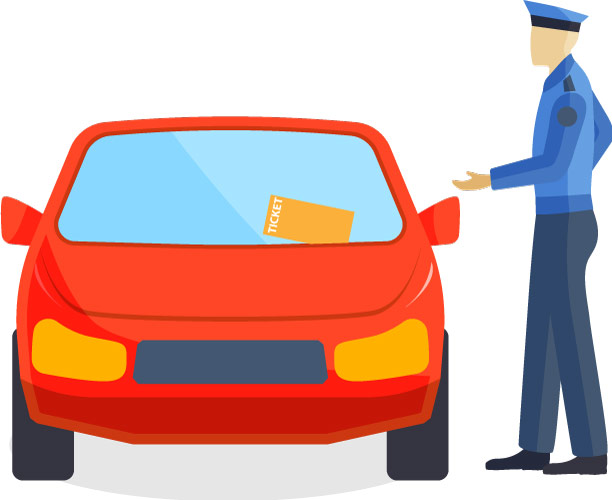Chapter 7 Bankruptcy - What you need to know

Chapter 7 Bankruptcy is the most common form of bankruptcy and was designed to provide people with a way out from the burden of debt they can longer pay. It is generally the quickest form of bankruptcy & allows indivduals to eliminate debt.
Generally, people DON'T "LOSE" any of their assets in Chapter 7 bankruptcy because federal exemptions allow you to retain your property. You can obtain a "Discharge" of your debts in as little as 4 months while getting "instant" relief from creditor harassment, bill collectors and collection agencies.
Why go to unknown attorneys for such an important matter as your financial future? Geraci Law has over 35 offices in 3 states with over 35 years experience! Call one of our experienced attroneys. Get a FREE CONSULTATION in office and see the Geraci Law difference!
Is there a "right time" to file Bankruptcy?

You bet there is. There’s a right time, and a wrong time for just about everything, and when you file your bankruptcy case is no exception. That’s why an experienced Geraci Law bankruptcy attorney can save you thousands, even tens of thousands, by making sure you file at the RIGHT TIME. You’re always in the right place, at Geraci Law, but you want to file at the RIGHT TIME! Here are a few examples:
Tax Time If you have tax debt you want to be very careful. Tax debt can be discharged in bankruptcy, but only if you file at the right time. See my video on Discharging Tax Liability in bankruptcy.
Refund Time A lot of Geraci Law clients get big income tax refunds. We see a lot of lawyers that don’t do much bankruptcy file a Chapter 7 or Chapter 13 at the WRONG TIME and lose the refund to creditors. At Geraci Law, that rarely happens
Off Work Time sometimes it is very good to file when you are off work. There are a lot of considerations, like were you hurt on the job? Are you going back to work right away? Which Chapter is best, 13 or 7?
Divorce Time Outside of who gets the kids and the dog, who gets the bills is the big issue in divorce. Don’t let fighting over debt with your soon to be ex cost you big time. Geraci Law can advise you. Ask your divorce attorney: we get a lot of referrals from divorce attorneys so you can solve your debt issues in advance of a divorce.
What do you lose in Bankruptcy?

Nothing but your debt if you hire a good lawyer. The object is to get rid of debt, and keep your house, vehicles, pension, I-R-A, 401K, tax refund, furnishings and life insurance. Geraci Law, we pay attention! You have nothing to lose but the blues!
The purpose of filing Chapter 7 or 13 is to prevent what happens if you don’t. Filing a bankruptcy protects you from any creditor action without bankruptcy court permission. Garnishments stop, and sometimes we can get your money back. Foreclosure stops. License suspension stops. Rules to show cause and body attachments stop. Liens and judgments are put on hold.
No one comes to your house and takes anything. You keep your house, car, and clothing and furniture. No one does a bankruptcy to lose anything but their bills. If you have too much money in the bank, your property is worth too much, or you have too much disposable income, we may advise you to pay your bills in installments under Chapter 13 in order to avoid losing anything.
You should have your list of assets ready for your Geraci Law lawyer to analyze. We can tell you in advance if you would lose anything, or have too many assets to do a Chapter 7, or how to protect assets in a Chapter 13. We run our own computer program to determine that.
Don’t hide stuff, like a classic car, artwork, or an interest in property or inheritance. Tell us, and we’ll tell you how to protect it. Geraci Law is the place to be when you need to get Debt Free!
How does Chapter 7 affect my vehicle?

What kind of vehicle do you have?
Is it an SUV, a truck, and antique vehicle that doesn’t run, a motorcycle, or a plain old Honda Civic?
What kind of vehicle it is a make a difference?
What condition is it in?
Is it tricked out or just a basic model?
What’s it worth?
Do you own it free and clear, or do you have a title lien on it, or maybe even an 84 month loan on?
Is it in storage?
Whose name is it titled in?
Who has the vehicle now?
Is the vehicle insured? Full coverage or just liability?
If it has a loan, are you the only signer on the loan or someone else liable?
If more than one person is on the title, is that person also on the loan?
Do you want to keep the vehicle, or do you want to get rid of it?
So, as you can see, there are at least 12 different questions that an intelligent attorney would want answers to. At Geraci Law we make it easy for you. If you think you need bankruptcy relief, you don’t have to worry about your vehicle. We don’t lose vehicles, unless you want to lose them!
So if you call us at 1-800-CALL-PFG, you know that number, have your insurance card in your hand. You could have your insurance card in your left hand, or you could have your insurance card in your right hand, you could even have it on the table in front of you. As long as you can read off your vehicle identification number or VIN, your Geraci law counselor will plug it into our Kelly blue book portal, and not only tell you exactly what the Kelly blue book price on it is, both retail and trade in, but we can also run an Experian soft pull, and see what your loan balance is.
Why would you want to know how much your vehicle is worth in the retail market, and how much you owe on it? That’s an easy one. If you owe $30,000 and the vehicle is worth $50,000, you’re a “winner winner chicken dinner” because you have $20,000 equity in your vehicle over and above what you owe on it. You could probably take the vehicle to CarMax, and Uber home with $20,000 in your pocket. You don’t need us!
But if you owe $30,000 on the vehicle, and it’s only worth $20,000, your $10,000 underwater. If the vehicle gets wrecked, and you don’t have replacement insurance, just actual cash value, your insurance company is only going to pay you $20,000 and you’ll still owe $10,000.
In chapter 7, if you want to keep a vehicle, you generally keep paying for it if you have a loan on. If you don’t have a loan on it the vehicle that must fit within the state or federal exemptions. Generally, if you have a vehicle, that’s worth $10,000 or $20,000 free and clear, you’re probably not going to want to file a Chapter 7 because the bankruptcy trustee will only allow you to keep a vehicle were three or five or $7000.
So the long and short of it is one quick call to 1-800-CALL-PFG and we can tell you if you have equity in your vehicle, and you can think about whether you want to keep it, or whether you might want to turn it in, because the day after you file for a brand-new car loan. The law always is a little underwater car loan, but at least 11 new car warranty, instead of something where year 10,000 or even 20,000 underwater. In chapter 7 if you want to keep the vehicle, most of the time you have to keep that also, and that’s something that we want to talk about, especially if you have a payment you can’t afford, because a Geraci law Chapter 13 may be able to solve that problem.
What debts are not discharged in bankruptcy?
The average person has very few debts that are not dischargeable. You want to read a really long article here’s a link: https://govinfo.library.unt.edu/nbrc/report/07consum.html There is another list if you search 11 U.S.C. 523. But I’ll try to make this simple:
Common debt that is not dischargeable is
1. a government insured student loan. The private student loans made to non-qualified schools for “educational benefits”, not direct tuition, or sometimes dischargeable.
2. Domestic support obligations.
3. Property settlements in divorce are not dischargeable in chapter 7 but may be in chapter 13
4. Fraud, breach of fiduciary duty, and willful and intentional injury 11 U.S.C. 523 2-4-6
5. DUI/DWI damage to property is dischargeable, but personal injuries from that aren’t.
6. Taxes from unfiled returns are never dischargeable. Taxes if you file the return, and it’s truthful, and you just didn’t pay the taxes can be discharged if filed on time, and you wait three years after April 15 after the tax year the taxes were due for. If you file them late, it’s basically two years +270 days.
7. Criminal fines and restitution
8. Loans owed to pension plans
9. Condo assessments if you stay in the unit after date of filing
10. Debts you make after date of filing
So, that’s it in a nutshell, as my friends the squirrels would say. At Geraci law, we always look at your debts and see if we think something is going to be a problem, because you want to know as much as you can before you even hire us or pay us a nickel, if we are going to be able to file a plan that will discharge your debts. That’s only fair isn’t it? We’re usually pretty good at predicting the future in bankruptcy.





